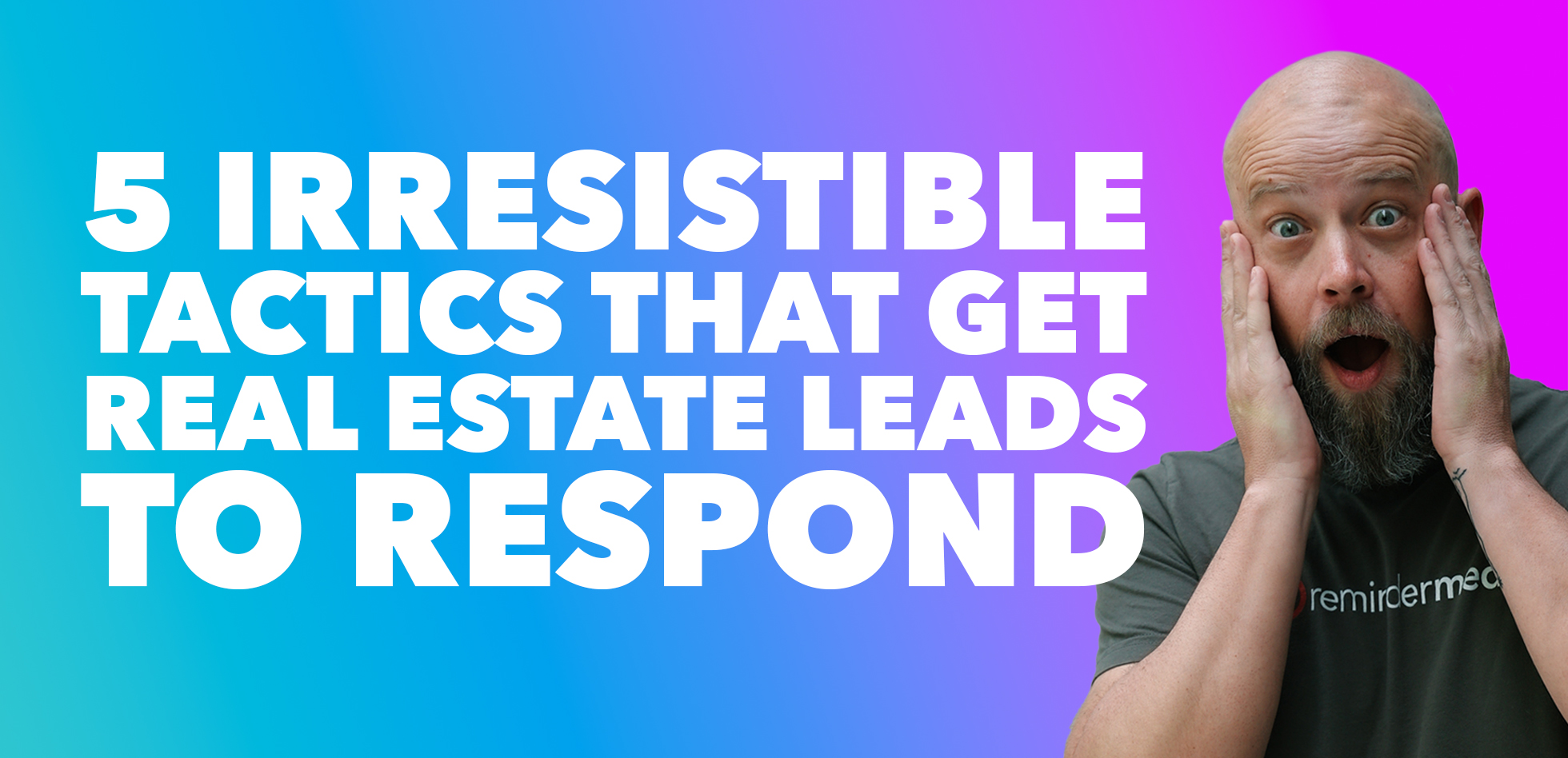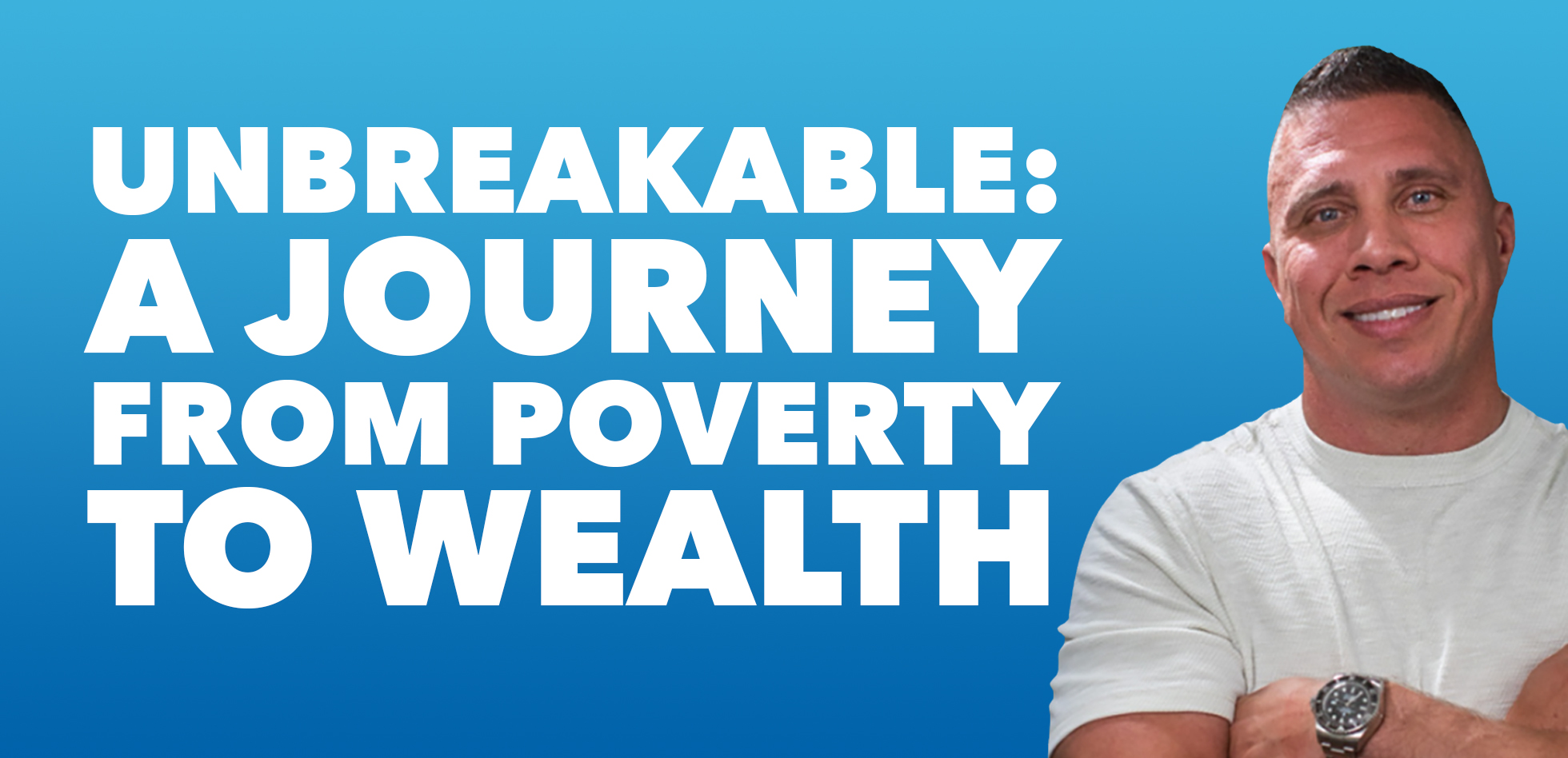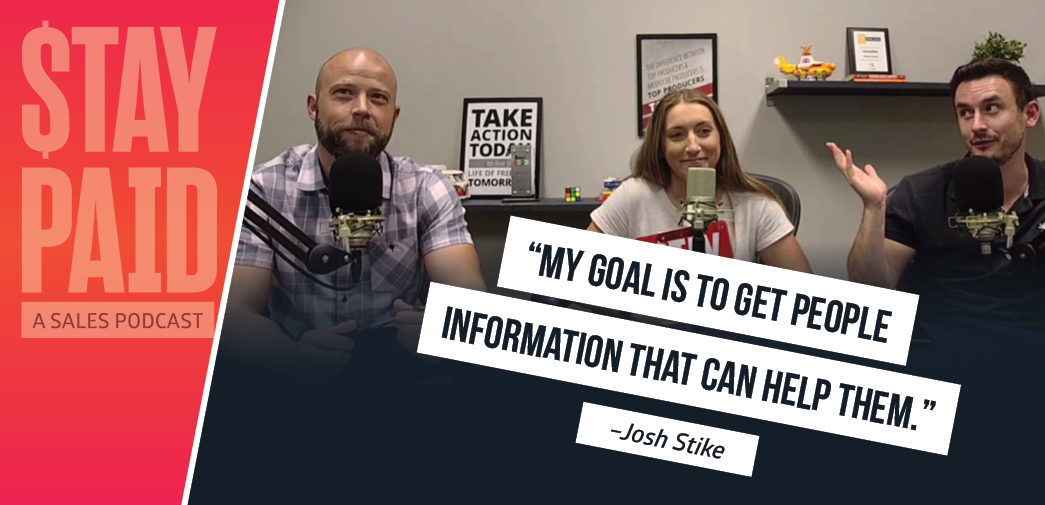As we approach the 100thepisode of Stay Paid, we thought it would be fun to switch gears a bit. That’s why we asked our listeners to submit their very best sales and marketing questions for our hosts, Luke Acree and Josh Stike.
This week on Stay Paid, Luke and Josh answer some of those questions, with the goal of giving you actionable advice that will help you take your business to the next level.
Q: What are the most effective ways to get business in a new market?
Luke: If you’re new to the market, you probably don’t have a sphere of influence. One of the things you should do right away is to get the people from your new social routines into your sphere. Start building a database right away. There is a direct correlation between the volume of your business and the size of your database.
I think one of the most cost-effective ways to market to a new community is to run ads on Facebook. My brother would run ads on Facebook for $5 a day. One of the things he did was boost listings.
If you’re a real estate agent, you can also call FSBOs and expired listings—keep calling until they list with another agent or list with you.
Another thing real estate agents can do is host open houses. Find a top producer and offer to host the open house for them. This is a great way to connect with buyer leads.
Josh: Have a solid 6–8 second elevator pitch. Be ready with your unique value proposition. You don’t want to just say what you do—make it as specific and specialized as possible. If you’re a financial advisor, mention that there are hundreds of ways to file for Social Security, and that you’re looking to help retiring baby boomers get the benefits they’re entitled to.
Q: What’s the best way to track ROI from door knocking.
Josh: The same way that you would track any other marketing or sales effort. I’m in digital marketing. I spend a lot of time with Facebook ads and email marketing. We’re looking at reach. How many people can I reach with the dollars that I’m spending? It’s the same with door knocking. How many people can you reach with the time that you’re spending?
Once you know how many people you can reach, start working through the process. If I can reach 1,000 people for $100, and 10 percent of those people click through my ad, I have 100 people. If 10 percent of those fill out a form on my website, that’s now 10 leads generated. If I can convert 10 percent of that, that’s 1 transaction. Let’s just say that one person gives me $500. I’ve now got a 500 percent ROI.
Luke: There’s only so much time in a day. When you track your numbers, you might realize you need to knock on 500 doors a day to get one deal. That’s probably not feasible.
You can work to improve by examining your script, your nurture campaign, and other aspects of your process. Figure out whether it’s worth it to spend your time improving, or whether you should focus on another lead generation strategy. That’s what great business owners do.
[Feel free to make use of our free lead tracker, which you can get at the bottom of this post.]
Q: As a hair stylist, how can I deal with the fact that people waste our time by screenshotting our work and then going elsewhere?
Luke: You have to embrace a mind-set of abundance. I find that successful people have this attitude. We went live the other day on Facebook and discussed how the way you feel affects what you do.
This may not be the answer you want to hear, but you can take advantage of the fact that people are using your hairstyle. Acknowledge it, and say, “That’s awesome.” Reciprocity will eventually kick in.
Josh: If you know people are screenshotting your work, first, figure out where they live. They might not even be in your area. Encourage people, if they use your style as inspiration, to use a hashtag or mention you in their posts. You might also add something of value. Say, “If you come to my salon and let me do this for you, I’ll throw in a product for free.”
Give people a reason to come to you. Chances are, they already have a hairstylist they like. Convince them to use you instead. Throw in a free styling session as a loss leader.
Luke: There are so many heads of hair out there. You can waste so much energy obsessing over the competition. Let it fuel you instead. Go out and get the next head of hair.
Q: Have you ever said or done something on camera that you wish you could take back?
Luke: There are many, many things I’ve said in the moment, I’m sure, that I wish I could take back. I can’t think of anything specific right now. I don’t really think about it.
Josh: I think that’s a great lesson. When you started this journey of getting on camera, you overthought everything. Now, you say what’s on your mind, and you get on with it.
Q: How did you get comfortable being on camera all the time?
Josh: I don’t know if I’ll ever be comfortable being on camera. You literally just have to do it. I remember the first time I was on Stay Paid. I was so nervous. I had a list of every single stat I could think of in front of me to make sure I didn’t sound stupid. It stayed that way for a long time.
Then, we started doing these Above the Noise videos, where we have to look at the camera. But you just show up and do it.
Luke: You’ve got to do it. We all put on a persona. The hardest thing is being vulnerable. People connect with vulnerability. I’m saying that because it’s actually okay to show that you’re afraid of being on camera. Just don’t be rigid.
Josh: A lot of people have the same feelings of vulnerability. Nobody’s sitting there wanting the speaker to fail. Everyone wants you to succeed.
Q: How do you get a list of absentee owners to call?
Luke: One of the major categories of lead generation in real estate is calling homes that no one lives in. It’s a great way to find flips or investment properties.
We have gotten our data from Pioneer Data Solutions. One of the lead sources they provide is absentee owners. They give you the name, address, and the phone number (if they have it). We’ll call through the list and ask if people are interested in selling or getting an offer on their homes. We’ve gotten at least four flip properties this year by calling absentee owners.
You can also find absentee homes by driving by homes that seem unoccupied. Then, you can look up who lives there and use whatever’s out there to try to find a phone number for them.
Q: How do you motivate your team if the campaigns you’re running aren’t producing as expected?
Josh: Start with motivated people.
Luke: They say this in sound engineering. If the sound coming through is recorded badly, there’s only so much you can do.
Josh: It’s extremely hard to motivate someone who isn’t already motivated. You also need to ensure your team has the information needed to make decisions. We just talked about conversion rates—make sure they can see, as a team, what happened and what went wrong.
If two campaigns have different click-through rates but the same amount of leads, you might be able to determine that an email worked very well while a landing page needs work (or vice versa). We, as humans, are natural problem solvers. Give people the information and let them act. Track the results, and then pivot when needed.
I love to see campaigns fail if we can fail fast. We’ll know not to make those same mistakes next time.
Q: What is your most memorable client experience?
Josh: There have been a lot of experiences over 16 years. I don’t know if this is the most memorable, but it’s the first that pops into my head.
In the early days, we all wore many hats. Every customer had my personal cell phone number. I remember lying on the couch watching TV one night. A client called me freaking out over her custom back cover ad, just as we were about to go to print. I remember being on the phone with her, as I was driving to the printer, working to get her covers pulled.
Luke: I have a funny one. We tend to be proactive in our outreach. We were calling this real estate agent. The guy basically hung up on one of our callers, Tom. Tom assumed they got disconnected and chose to call him back. The guy picked up. He just unloaded. He said, “I’m going to call the federal government on you!” That one sticks out.
Leonard Schiffman has been on the podcast. He’s been a customer of ours for many years. He sent me a picture of his mother with every copy of our magazine he’d ever sent her. The impact portion of what we do is great. People who send the magazine feel like they’re famous, because they get calls from clients who react that way.
Josh: We had an agent who got their first million-dollar listing. She took an expired listing and sent them a copy of the magazine, letting the seller know what she could do for them.
Q: Who has been your favorite guest so far on Stay Paid?
Luke: There are so many good ones that I can’t choose a favorite. I loved Andy Dane Carter and Ricky Carruth. I’m biased, but I also loved talking to my brother, Stephen.
Josh: The one we just recorded with Rhyan Finch—which will come out after this—was incredible. Tiffany Beltran was great, as was Veronica Figueroa.
Luke: Veronica was awesome. I hardly spoke, because I was in awe.
Q: Which conferences do you suggest for real estate agents?
Luke: It depends what you’re after. If you’re interested in industry trends, go to Inman. It’s more news-oriented. They’re going to talk about controversial topics and predict where the industry is headed. I think the NAR® Conference is also great.
Josh: I would say you should go to whatever’s in your area, but also attend conferences that will encourage you to take action.
Luke: People underestimate how empowering it is to get into a room full of your peers. I’d definitely recommend going to your company’s conference if they have one.
Q: What are your tips for a good work-life balance?
Luke: The biggest mistake I see is that agents don’t set boundaries with their clients. If you don’t set expectations in the beginning, you are probably going to lose that client. You can help clients late at night or early in the morning in the case of an emergency, but you shouldn’t be available 24/7.
I think people respect and trust you more when you set boundaries and expectations. You’re confident, and you do what you do very well.
Josh: To me, there’s never been a difference between work and life. Work is your livelihood, and life is work. Obviously, you can’t work 16 hours a day. Focus on what you’re doing, whether you’re at work or outside work.
Luke: Include your family, as well. They want to share in your pains and your successes.
Q: What are your goals for Stay Paid?
Josh: My goal is to get people information that can help them.
Luke: I was going to say the same thing. I want to be able to interview better to get more tangible action items from the people who’ve had success.
At the LPL Conference, I saw Katie Couric being interviewed. It was wild to see how, even as the person being interviewed, she was still interviewing. It shows you that interviewing is an art and a science that you can learn.
Action Items:
- Take action on one of the tips that you’ve heard while listening to Stay Paid.
Resources:
Download: Our Free Lead Tracker
Watch: Ep 85: Get 30 Transactions a Year by Door Knocking (James Festini)



















 Soundcloud
Soundcloud iHeart Radio
iHeart Radio Spotify
Spotify Spotify
Spotify


